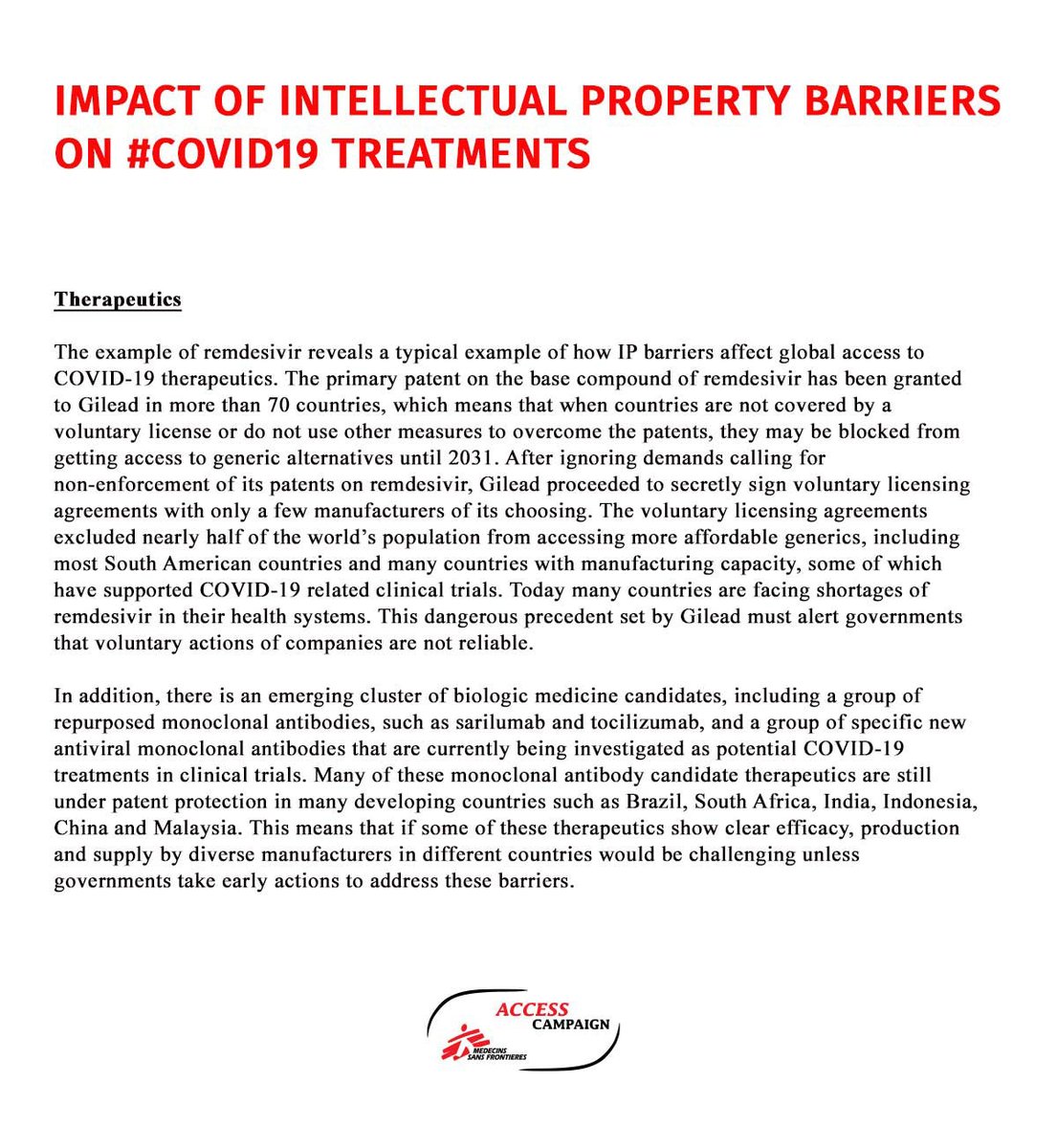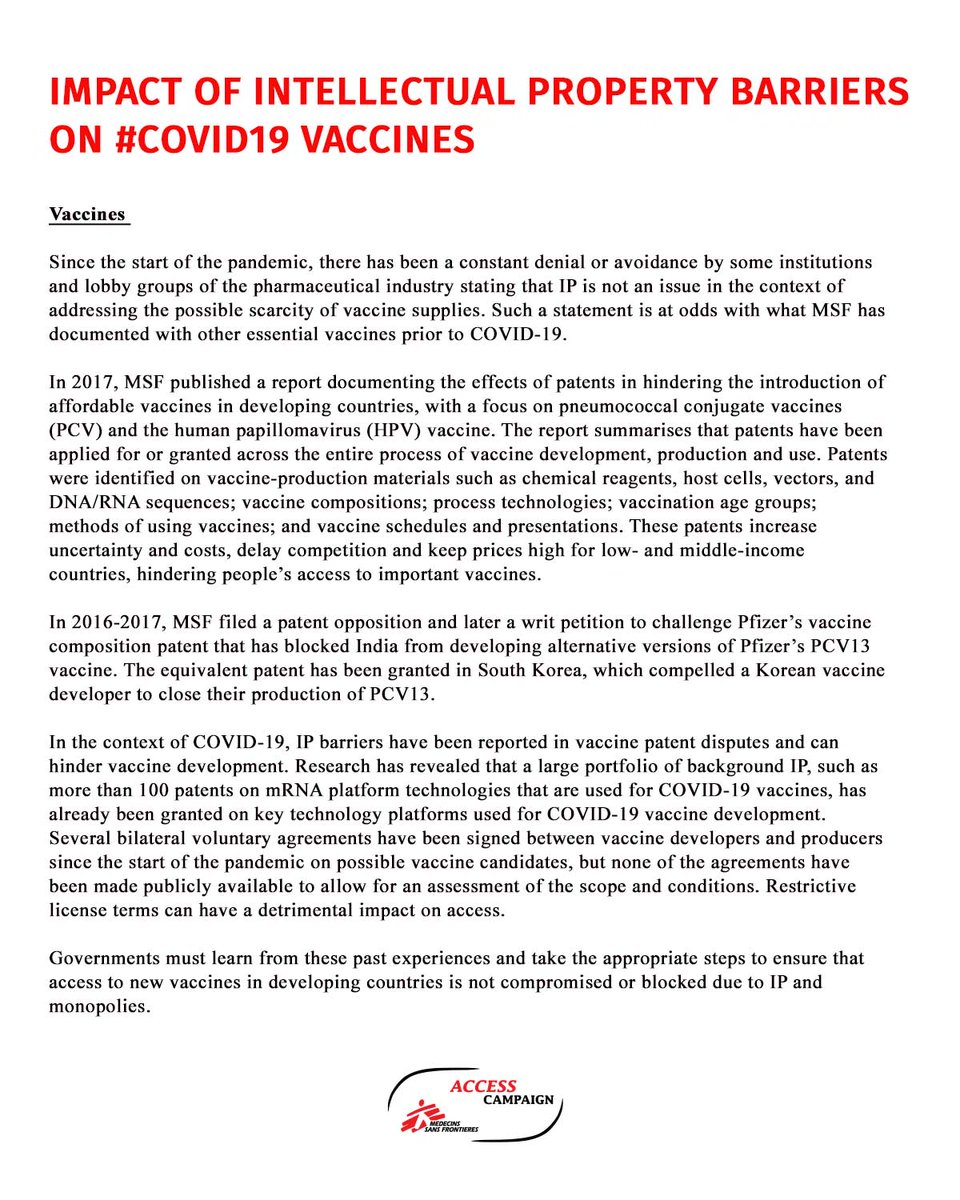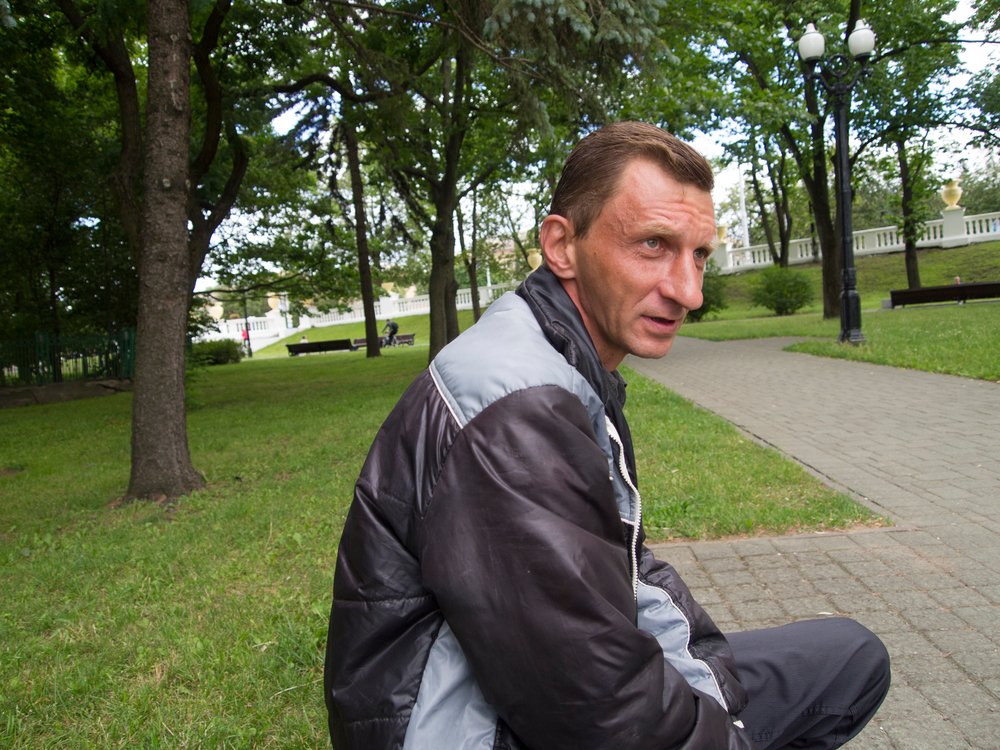
THREAD: MSF has experienced first-hand positive and negative impacts of voluntary licenses on access to the medicines we provide to people in our care and beyond.
Here are some things you should know about voluntary licenses & access to medicines 👇
Here are some things you should know about voluntary licenses & access to medicines 👇
Did you know that pharma companies often restrict to where and to whom a generic drug can be sold?
This happens via private contracts, meaning that people are denied #AccessToMedicines due to geographic limitations decided in secret agreements.😤
🔽
bit.ly/31xgvu3
This happens via private contracts, meaning that people are denied #AccessToMedicines due to geographic limitations decided in secret agreements.😤
🔽
bit.ly/31xgvu3
Did you know that during public health emergencies, governments have legal ways to override patents and produce or import any generic drug without the consent of the pharma company that owns the patent?
It’s simple: put lives over patents.
bit.ly/35tpgpY
It’s simple: put lives over patents.
bit.ly/35tpgpY
Did you know that pharma companies often apply for secondary patents on drugs so they can keep charging sky-high prices?
However, governments can design laws to overcome these unfair patents, challenge “patent evergreening” and put people before profits.
bit.ly/31xgvu3
However, governments can design laws to overcome these unfair patents, challenge “patent evergreening” and put people before profits.
bit.ly/31xgvu3
Did you know that intellectual property IS a barrier to access?
Why? Because IP gives pharma control over the market, enabling pharma alone to decide on global production and supply chain: who can produce drugs and where they can be supplied.
For more👉bit.ly/31xgvu3
Why? Because IP gives pharma control over the market, enabling pharma alone to decide on global production and supply chain: who can produce drugs and where they can be supplied.
For more👉bit.ly/31xgvu3
Did you know that if pharma companies refuse to grant a country a license to produce or sell a drug, the #TRIPS Agreement empowers countries to legally override this refusal and allow for the manufacture and sale of more affordable medicines in country?
bit.ly/35tpgpY
bit.ly/35tpgpY
Did you know that pharma company @GileadSciences secretly signed licensing agreements for the supply of remdesivir that excluded 35% of the world’s population, including nearly all South American countries and countries which supported #COVID19 trials?
bit.ly/35tpgpY
bit.ly/35tpgpY
Did you know that pharma is able to designate countries as “manufacturing only”?
📌India, home to a hepatitis C epidemic, and manufacturer of affordable #HepC drug glecaprevir/pibrentasvir, is restricted by @abbvie from supplying its home country market.
bit.ly/35tpgpY
📌India, home to a hepatitis C epidemic, and manufacturer of affordable #HepC drug glecaprevir/pibrentasvir, is restricted by @abbvie from supplying its home country market.
bit.ly/35tpgpY
• • •
Missing some Tweet in this thread? You can try to
force a refresh





